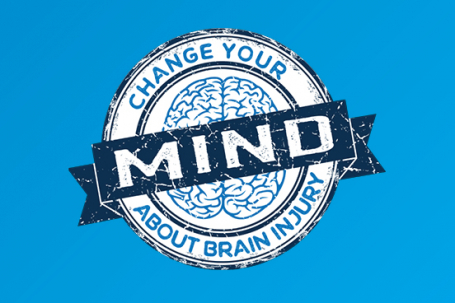
A traumatic brain injury (TBI) is a very complex injury that affects millions of individuals and families each year. Brain injury is a life-altering event which affects every area of a person’s life, including work. During this year’s Brain Injury Awareness Month, explore the lasting effects of a brain injury with us as we dive into what exactly a TBI means for employees and employers alike.
According to the Center for Disease Control and Prevention (CDC), “a TBI is caused by a bump, blow, or jolt to the head or body, or by a penetrating head injury that disrupts the normal function of the brain.” (Traumatic Brain Injury & Concussion, 2019) This sudden movement can cause varying amounts of damage and recovery depending on the force, direction, and intensity.
Signs and symptoms of a TBI include memory loss and other cognitive deficits, visual impairment, fatigue, inappropriate behaviors or difficulty self-monitoring, and depression. Brain injury affects both individuals living with a TBI and their families.
Many employees living with a TBI re-enter or enter the workforce every year. Depending on the individual and the complexity of their injury, accommodations or adjustments may be needed temporarily or permanently do help employees carry out and succeed at their jobs. Accommodations can be intimidating or unfamiliar to employers, but they shouldn’t be. Common accommodations for employees with brain injury include:
• A wall calendar and planner for memory retention
• Verbal cues, reminders, or an app for attention and memory issues
• Providing written instruction or electronic reminders for organizing, planning, and prioritizing
• Working from home or remotely to reduce fatigue or seizure activity
• Speech recognition software or job restructuring to accommodate executive functioning deficits
• LED light filters or cubical door shields to assist with photosensitivity
It’s helpful to think of accommodations in the same way you envision a pair of glasses. Glasses are essential to the person needing them to see and perform to the best of their abilities, but they also may need attention and adjusting over time. It is vital that employers take time to ask questions to better understand the needs of employees with and without brain injury.
As brain injury research constantly evolves, continuing education is needed to identify the unique needs of employees with brain injury. TBI is often a co-occurring disability and as such the symptoms of TBI are often misdiagnosed or untreated and unsupported. TBI is an injury that does not discriminate and is often misleading and frustrating. Just because an individual looks fine on the outside, it does not mean they are okay on the inside. A TBI is comparable to a snowflake, sunset, or a single strand of DNA – it can’t be duplicated and it’s always unpredictable.
At the Tennessee Disability Coalition, we have a program called Brain Links. This team of brain injury specialists aims to enrich the lives of individuals living with TBI by educating and empowering the people serving them. Brain Links is dedicated to working with physicians, employers, and individuals experiencing TBI to ensure that all people with TBI have a fulfilling and successful life. This team uses current, research-based materials to train and educate all people, including professionals, about TBI. We are happy to provide workforce training materials for educators, physicians, nurses, direct support staff, and employers to ensure you have the tools and confidence to best support people living with TBI.
To learn more about Brain Links, visit https://www.tndisability.org/brain.
For more information about Brain Injury Awareness Month, visit https://www.biausa.org/public-affairs/public-awareness/news/march-is-brain-injury-awareness-month.
REFERENCES:
• Accommodation and Compliance: Brain Injury, Job Accommodation Network
• Traumatic Brain Injury & Concussion, Centers for Disease Control and Prevention
• Understanding Traumatic Brain Injury: A Guide for Employers, Mayo Clinic